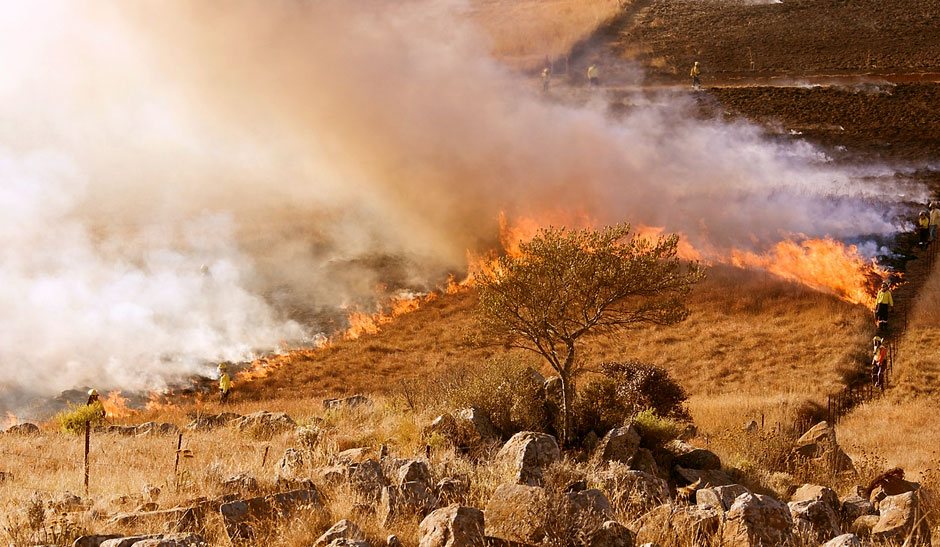Climate Change and Canadian Wildfire Smoke: A Wakeup Call
Last Updated: June 08, 2023
Tweet
Whether it is about Australia’s Black Summer or San Francisco’s Day The Sun Didn’t Rise, the wildfires and air filled with smoke are recurring incidents. Recently many territories of North America are alarmed by the Canadian wildfire. Air quality is worsening and the level of air pollution is record high.
An international study has confirmed that the climate-related risk of forest fires is increasing worldwide due to global warming. The research, which reviews 500 previous research papers and includes new state-of-the-art data analysis using satellite observations and climate models, suggests that human actions and policies can play a crucial role in regulating regional impacts.
Canadian Wildfire Smoke
It started in March 2023 and kept increasing in intensity around June, Canada is facing an ongoing record-setting series of wildfires. Smoke generated in this wildfire is disrupting the lives in the US and Canada. From Ottawa to New York, Pennsylvania and even Washington D.C, the smoke of this wildfire is rapidly covering the atmosphere of many major states.
The frequency of favorable climatic conditions for large fires in some regions is already significantly deviating from what would be expected without global warming, due to the 1.1°C increase in temperature induced by human activities. The increase in fire risk has also occurred more rapidly than predicted. Canada's wildfire season runs from May through October, however, fire and smoke of this scale is rare. Most parts of Canada, like the rest of North America, has experienced the highest ever heat and drought recently as climate change continues to warm the planet. Last month Canada had the highest temperature in British Columbia which was 49.6 degrees Celsius. The rise in temperature and drought escalated the impact of wildfire.
How Human Activities are Triggering Wildfires
Climate-related fire risk does not always translate into a larger burned area, as humans have reduced fire spread in some naturally fire-prone landscapes. This is the case in African savannas or Brazil, where increased agricultural and grazing areas have reduced natural vegetation and, therefore, fires.
Please click here to get the complete details on available programs, volunteer’s roles and activities , accommodation, cost, visa , vaccination, airport arrival and the rest of it.
Get More Info Now »
In Canada for instance, though many wildfires are caused by lightning, still a significant percentage of wildfires are human caused. In addition to that, changing weather and increasing temperature of the planet is making these wildfires out of control and the impact is of insurmountable scale.
Although the climatic conditions that promote forest fires have already increased in many regions of the world and will continue to do so, human factors still mediate, and in some cases even reverse, the climate effects. But that does not mean we can relax. If we don't take action now to reduce global warming below 2°C, the fire risk will increase to unprecedented levels in just a couple of decades.
What is the relationship between climate change and wildfires?
Anthropogenic climate change is directly related to wildfires. It is a fact that the climate-modifying events caused by humans over the past decades have an influence on when, where, and how many wildfires start and, especially, how they spread.
If fires in an environment become more frequent, the selective pressure represented by natural selection favors certain species that reproduce quickly and benefit from fire. The size determines the irregularity of the landscape and the distance living beings will have to travel to regenerate the devastated environment. Intensity, measured as the amount of energy released in the fire, can change significantly depending on weather conditions or the vegetation composition of the ecosystem.
What We Should Learn from Canadian Wildfire Smoke Other Climate Change Events
Millions of people affected with Canadian wildfire smoke are advised to use face masks. Red Cross has published an advisory to keep yourself safe from wildfires. There is also a safety guideline from CDC.
However we also need a permanent solution to this problem. We need to realize that wildfires and the scale of their impact are increasing, and the main reason is the increasing temperature of the planet due to climate change and global warming. There is no escape from this problem, we need to face it and acknowledge that only by improving our human activities can we improve the climatic condition of this planet.
Please click here to get the complete details on available programs, volunteer’s roles and activities , accommodation, cost, visa , vaccination, airport arrival and the rest of it.
Get More Info Now »


